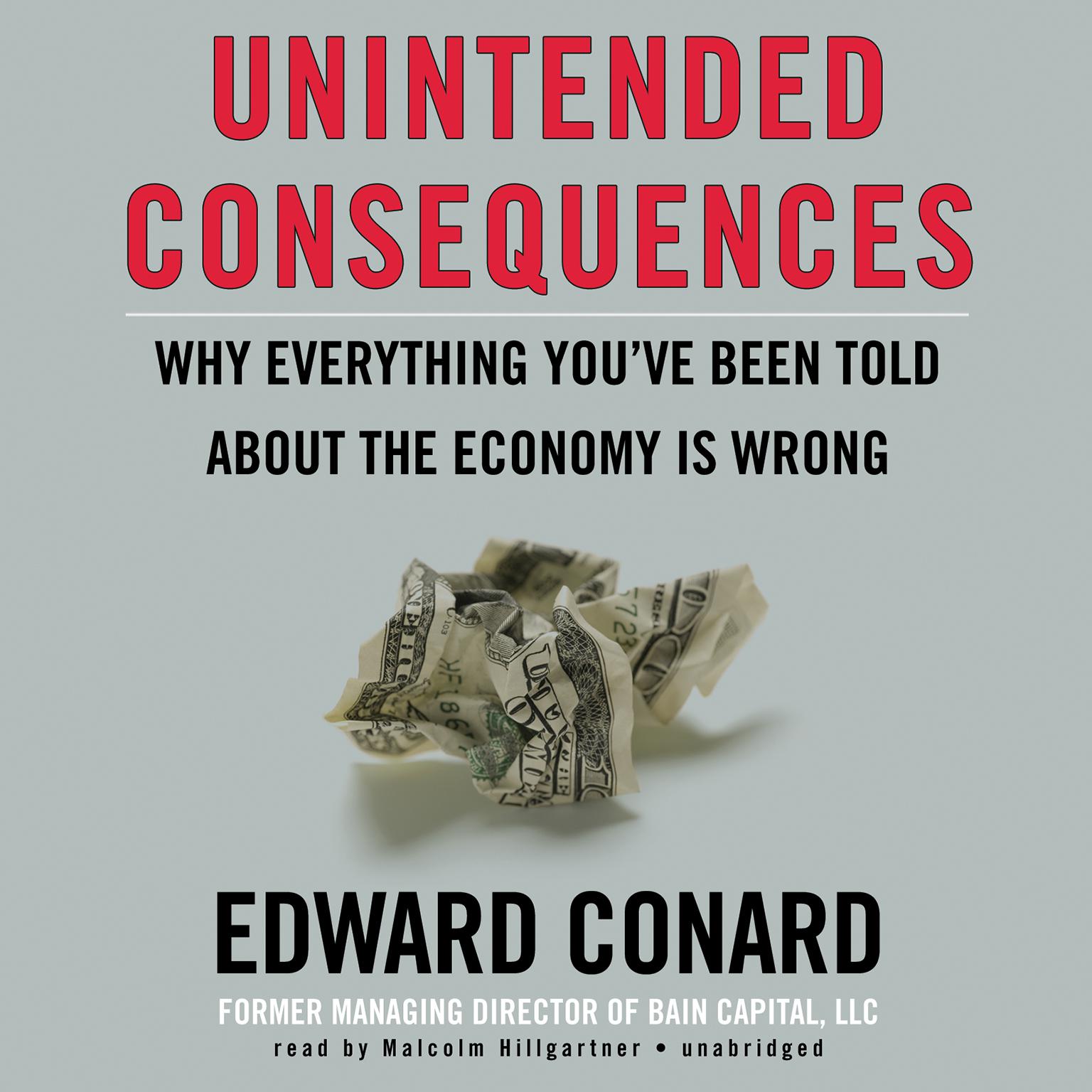 Play Audiobook Sample
Play Audiobook Sample
Unintended Consequences: Why Everything You’ve Been Told about the Economy Is Wrong Audiobook
 Play Audiobook Sample
Play Audiobook Sample
Quick Stats About this Audiobook
Total Audiobook Chapters:
Longest Chapter Length:
Shortest Chapter Length:
Average Chapter Length:
Audiobooks by this Author:
Publisher Description
In the aftermath of the financial crisis, many commonly held beliefs have emerged to explain its cause. Conventional wisdom blames Wall Street and the mortgage industry for using low down payments, teaser rates, and other predatory tactics to seduce unsuspecting home owners into assuming mortgages they couldn't afford. It blames average Americans for borrowing recklessly and spending too much. And it blames the tax policies and deregulatory environment of the Reagan and Bush administrations for encouraging reckless risk taking by wealthy individuals and financial institutions. But according to Unintended Consequences, the conventional wisdom masks the real causes of our economic disruption and puts us at risk of a slew of unintended—and potentially dangerous—consequences.
Unintended Consequences is not a book that takes a couple of insights and expands them into three hundred pages; rather, it covers the entire scope of the economy. It's a fascinating and contrarian case for how the economy really works, what went wrong over the past decade, and what steps we can take to start growing again. Whether you agree with the book's provocative and counterintuitive conclusions or not, Unintended Consequences will reward you with a sophisticated understanding of the contemporary economy—one no other book has yet provided.
Download and start listening now!
“Ed Conard provides a provocative interpretation of the causes of the global financial crisis and the policies needed to return to rapid growth. Whether you agree or not, this analysis is well worth reading.”
— Nouriel Roubini, chairman of Roubini Global Economics
Quotes
-
“There are an amazing number of good ideas and interesting points made in this book.”
— Steven Levitt, coauthor of the New York Times bestseller Freakonomics -
“Unintended Consequences will be the most talked-about economics book in 2012.”
— Kevin Hassett, senior fellow and director of economic policy, American Enterprise Institute -
“Ed Conard’s book presents the most cogent and persuasive analysis of the financial crisis to date.”
— Andrei Shleifer, Bates Clark Medal winner, Harvard University -
“Ed Conard has written a provocative and important book about the economy that challenges conventional wisdom about the financial crisis, the trade deficit, government policy, and the path to prosperity.”
— William A. Sahlman, senior associate dean, Harvard Business School
Awards
-
A New York Times bestseller
Unintended Consequences Listener Reviews
-
" A lot of the arguments in this book were wonky enough to be over my head, and I didn't find the rest very convincing. Conard makes plenty of commonsensical points and then overextends them and seems to paper over inconvenient contrary evidence. Not recommended. "
— Noah, 10/29/2013 -
" Rather heavy reading about our economy and how we got to where we are now. It does make some interesting points. Very thoughtful. "
— Terri, 12/21/2012
About Edward Conard
Edward Conard was a partner at Bain Capital from 1993 to 2007. He served as the head of Bain’s New York office and led the firm’s acquisitions of large industrial companies. He sits on several boards of directors, including the boards of Waters Corporation and Sensata Technologies. Prior to Bain, Conard worked for Wasserstein Perella, an investment bank, and Bain & Company, a management consulting firm, where he headed its industrial practice. He is a graduate of Harvard Business School and the University of Michigan.
About Malcolm Hillgartner
Malcolm Hillgartner is an accomplished actor, writer, and musician. Named an AudioFile Best Voice of 2013 and the recipient of several Earphones Awards, he has narrated over 250 audiobooks.




